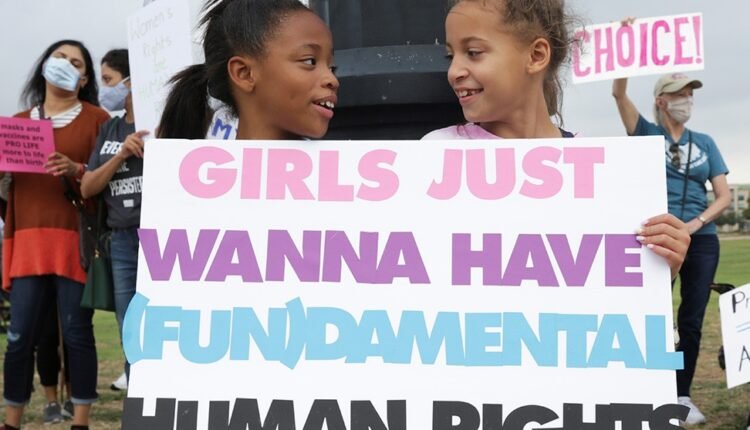Fundamental Rights and Fundamental Human Rights refer to the basic human rights guaranteed to every individual by the Constitution of India, regardless of their gender, caste, religion, or creed. These rights provide people with essential freedoms and protections, such as freedom of speech, right to life, right to education, and privacy.
They are considered integral to the existence and dignity of every human being and cannot be taken away or restricted. These rights have a high level of protection and are essential for maintaining equality and justice in society. Examples of fundamental human rights include civil and political rights, freedom from discrimination, and the right to assembly.
They are recognized and upheld internationally through human rights conventions and declarations.
Understanding The Concept Of Fundamental Rights
Understanding the concept of fundamental rights is crucial in recognizing the fundamental human rights that every individual possesses. These rights are considered as basic human rights of all citizens, irrespective of their gender, caste, religion, or creed. The definition of fundamental rights can be traced back to the historical development of the concept.
Fundamental rights are sections of the Constitution of India that provide people with their rights. They encompass various aspects such as equality, religion, and freedom. Examples of fundamental rights include freedom of speech, trial by jury, protection against self-incrimination, and protection against unreasonable searches and seizures.
Human rights, on the other hand, are inherent to all human beings and are inalienable. They include the right to life and liberty, freedom from slavery and torture, freedom of opinion and expression, the right to work and education, and many more. These rights are universally recognized without discrimination.
References:
– Toppr: Rights and Fundamental Rights – Equality, Religion, Freedom
– Cornell Law School: Fundamental Right
– Council of Europe: What are human rights?
– United Nations: Human Rights
– Wikipedia: Fundamental rights
Examples Of Fundamental Human Rights
Examples of fundamental human rights include the right to life, liberty, and security of person, as well as the right to freedom of thought, conscience, and religion. These rights are considered as basic human rights of all citizens, irrespective of their gender, caste, religion, or creed. Human rights are inherent to all human beings and cannot be lost or suspended in most circumstances. They include the right to life and liberty, freedom from slavery and torture, freedom of opinion and expression, the right to work and education, and many more. These fundamental human rights are enshrined in international conventions such as the Universal Declaration of Human Rights and the International Covenant on Civil and Political Rights.
Fundamental Rights In International Law
Fundamental rights in international law are protected through various treaties and conventions. These international human rights instruments play a significant role in safeguarding and promoting basic human rights. They provide a framework for countries to adhere to and ensure that individuals are granted fundamental rights regardless of their gender, caste, religion, or creed.
One such important instrument is the Universal Declaration of Human Rights. It proclaims the rights and freedoms to which all individuals are entitled, including the right to life, liberty, and security of person. Other important treaties include the International Covenant on Civil and Political Rights and the International Covenant on Economic, Social and Cultural Rights.
These instruments address a wide range of human rights issues, such as discrimination, women’s rights, freedom of assembly, human migration, and the human right to water and sanitation. They establish a solid foundation for protecting and promoting human rights globally.
Constitutional Protection Of Fundamental Rights
Fundamental rights, also known as fundamental human rights, are essential protections granted to individuals under a country’s constitution. These rights are considered basic human rights and apply to all citizens, regardless of their gender, caste, religion, or creed. They encompass various rights, such as freedom of speech, equality, religion, and protection against discrimination.
The constitutional protection of fundamental rights plays a crucial role in safeguarding the rights of individuals. Constitutions act as the foundation for ensuring that fundamental human rights are upheld and respected in a society. They provide the legal framework and guidelines for the protection and promotion of these rights. The relationship between fundamental rights and the rule of law is intertwined, as the rule of law ensures that these rights are enforced and upheld without discrimination or bias. Constitutional protections of fundamental rights serve to provide individuals with essential liberties and freedoms, such as freedom of speech, the right to a fair trial, and protection against discrimination. These rights are considered as basic human rights and are guaranteed to all citizens, regardless of their gender, caste, religion, or creed. Through the constitutional protection of fundamental rights, societies strive to create a just and equitable environment for all individuals.
Limitations On Fundamental Rights
Limitations on fundamental rights are essential for balancing the rights of individuals with the public interest. In certain circumstances, the government may justify limiting these rights to ensure the safety and well-being of society as a whole.
One justification for limiting rights is the protection of national security. Governments may impose restrictions on freedom of speech or assembly in situations where it may pose a threat to the stability and security of the country.
Another justification is the prevention of harm to others. For example, the right to freedom of movement may be restricted in order to prevent the spread of contagious diseases or to maintain public safety during emergencies.
Additionally, limitations on fundamental rights are often necessary to maintain social order. For example, the government may place restrictions on the right to peaceful assembly in order to prevent public disruptions or violence.

Credit: truecolorsunited.org
Violations Of Fundamental Rights
In the context of fundamental rights, violations occur when these rights are infringed upon or denied to individuals or groups. Common forms of violation include:
- Discrimination based on gender, race, religion, or ethnicity
- Restrictions on freedom of speech and expression
- Violence and physical abuse
- Denial of access to education or healthcare
- Invasion of privacy
Such violations have significant impacts on both individuals and society as a whole. They can lead to feelings of injustice, inequality, and oppression among the affected individuals. Additionally, they can hinder social progress, limit personal development, and create a climate of fear and distrust. It is important to address and prevent these violations to ensure the protection of fundamental rights and foster a more inclusive and equitable society.
Enforcing Fundamental Human Rights
When it comes to enforcing fundamental human rights, courts and tribunals play a crucial role in ensuring justice and protecting the rights of individuals. These judicial bodies have the power to interpret and apply the law to cases involving rights violations. They have the authority to hear and determine claims brought by victims and provide remedies for the violations experienced.
Moreover, courts and tribunals have the responsibility to hold individuals, organizations, or even governments accountable for their actions or omissions that infringe upon fundamental human rights. They can issue orders, injunctions, and judgments to ensure that the rights of individuals are protected and honored.
In addition, victims of rights violations have various remedies available to them. These remedies may include monetary compensation, injunctions, reinstatement, or any other appropriate action that would restore their rights and provide redress for the harm caused.
The Future Of Fundamental Rights
The future of fundamental rights is facing emerging challenges and new perspectives. In today’s rapidly evolving world, ongoing advocacy and education play a vital role in ensuring the protection and promotion of these fundamental human rights. With the rise of technology and globalization, new issues such as online privacy, digital rights, and cyberbullying have gained prominence. Additionally, social, political, and economic changes have led to debates surrounding gender equality, religious freedom, and refugee rights. It is crucial to continue raising awareness and engaging in dialogue to address these issues and protect the rights of all individuals, regardless of gender, religion, or ethnicity. By staying informed and actively participating in advocacy efforts, we can contribute to a future where fundamental human rights are universally respected and upheld.
Frequently Asked Questions For Fundamental Rights, Fundamental Human Rights
What Are Fundamental Rights And Human Rights?
Fundamental rights and human rights are basic rights that every individual is entitled to. These rights are protected by the Constitution of a country and ensure equality, freedom, and dignity for all citizens, regardless of their background. They include rights such as freedom of speech, right to life, right to education, and protection against discrimination.
Human rights are universal and cannot be taken away from individuals.
What Are Your Fundamental Rights?
Fundamental rights are basic human rights guaranteed to all citizens, irrespective of gender, caste, religion, or creed. These rights include freedom of speech, trial by jury, protection against self-incrimination, and protection against unreasonable searches and seizures. They are inalienable and cannot be lost or suspended, as they are linked to the very existence of human beings.
What Is The Fundamental Human Rights Theory?
The fundamental human rights theory states that these rights are inherent to all human beings and cannot be taken away. They are linked to human existence and are universal, regardless of gender, religion, or caste. In certain circumstances, some rights may be restricted.
What Are Fundamental Rights And Why Are They Important?
Fundamental rights are essential human rights protected by the Constitution, providing every individual with basic freedoms and protections. They are important as they ensure equality, fairness, and dignity for all citizens.
What Are Some Examples Of Fundamental Rights?
Examples of fundamental rights include the right to freedom of speech, the right to equality, the right to education, the right to privacy, and the right to life. These rights are crucial in upholding individual liberties and promoting a just society.
Conclusion
Overall, fundamental rights are essential for safeguarding the dignity and welfare of every individual in society. These rights are enshrined in the Constitution of India and are considered basic human rights that apply to all citizens regardless of their background.
By guaranteeing equality, freedom, and protection against discrimination, fundamental rights serve as a backbone for a just and inclusive society. As we strive for progress and social harmony, it is imperative to uphold and promote these fundamental human rights for the betterment of individuals and the collective well-being of society.



